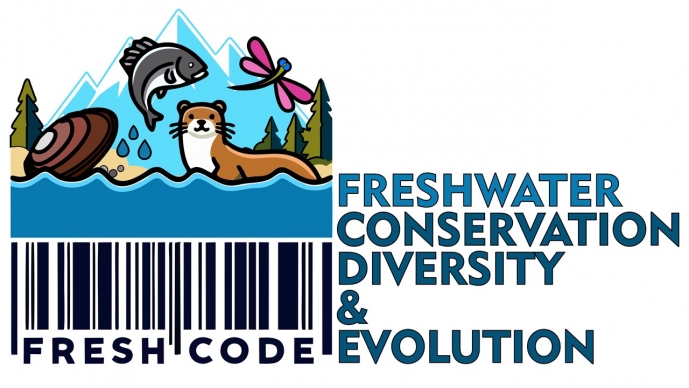FRESHwater COnservation, Diversity and Evolution - FRESHCODE
The conservation and management of freshwaters is of paramount importance, not only because they are essential to sustain life, but also because they are essential to the functioning of modern society, providing a valuable resource for economic, cultural, aesthetic, scientific and educational purposes. Freshwater habitats, which cover only 0.8% of the Earth's surface and hold 0.01% of its water, are disproportionately rich in biodiversity, including 40% of fish species and a quarter of all vertebrates. Despite their richness, they're among the world's most threatened ecosystems, largely because of their proximity to human settlements, making them vulnerable to pollution and runoff. Human activities have significantly altered these habitats through the channelling of rivers, the reshaping of lakes and the construction of barriers such as dams, leading to severe declines in biodiversity.
This group focuses on the conservation biology of freshwater ecosystems and taxa and will contribute to the understanding of their conservation status and the evolutionary, ecological, behavioural, and demographic processes affecting their populations through a combination of the following lines of research.
. Developing and optimising novel methodologies for the detection and monitoring of freshwater species.
. Identifying priority freshwater areas, and habitats by characterising their species composition, threats, complementarity, and irreplaceability.
. Identifying priority freshwater taxa and populations by characterising their genetic and ecological uniqueness and diversity as well as by assessing their conservation status.
. Increasing the basic knowledge of the main life history and ecological traits of freshwater taxa, which are key factors in supporting effective conservation measures and propagation programmes.
Ultimately, the group aims to provide action plans and evidence-based management strategies and actions to prevent extinctions and promote the recovery of freshwater species and habitats, particularly those of conservation concern.
